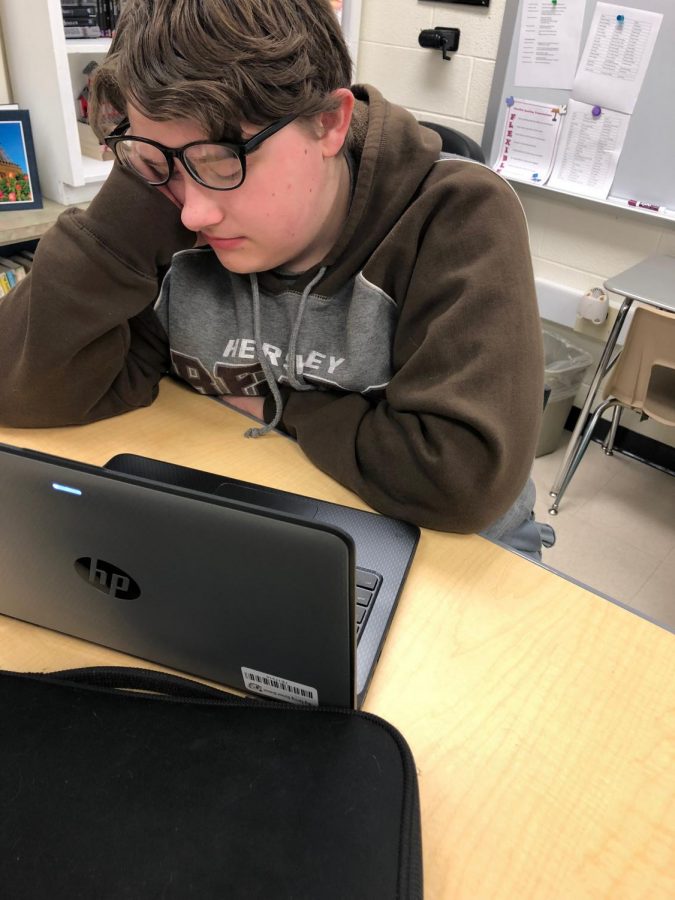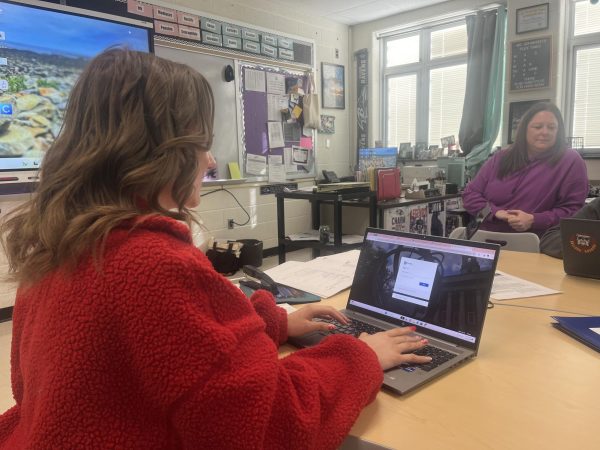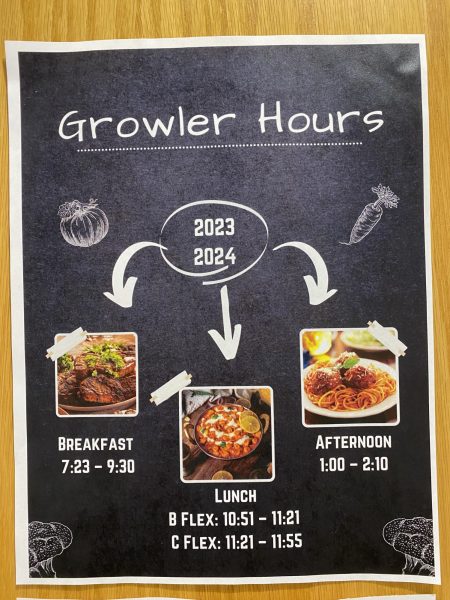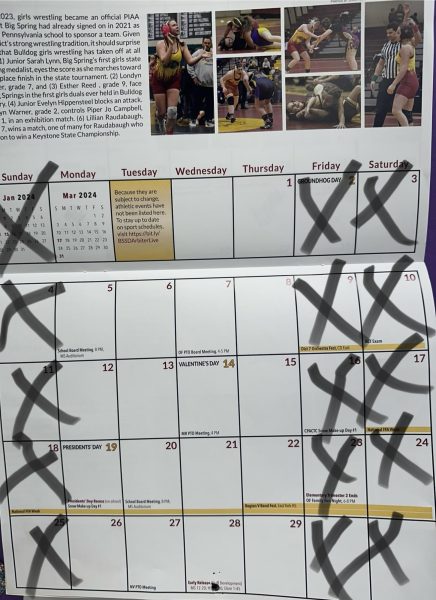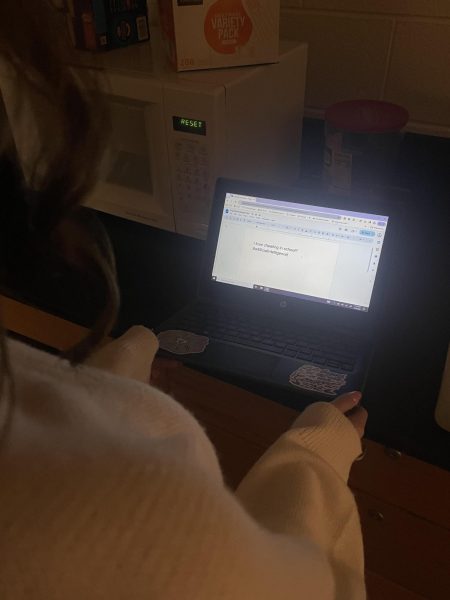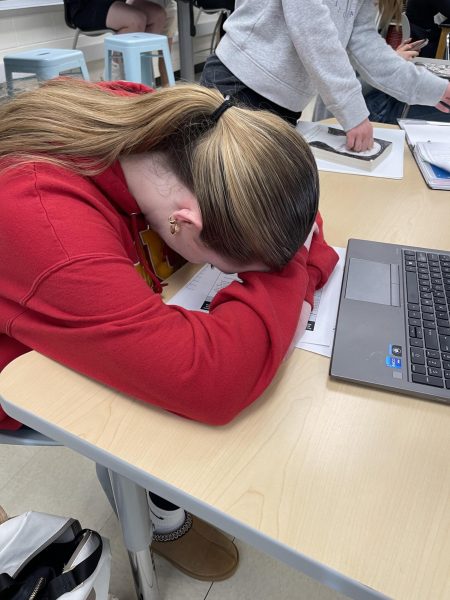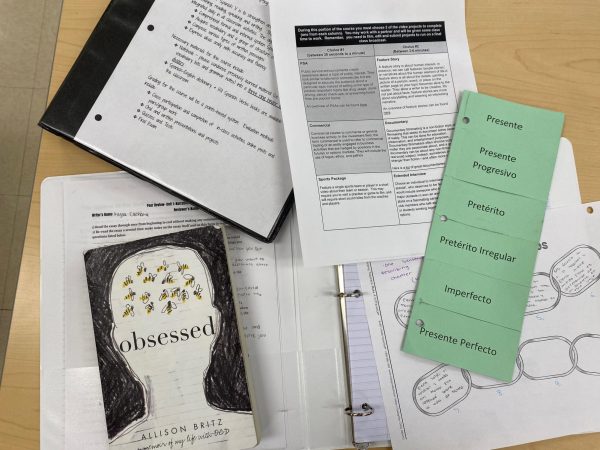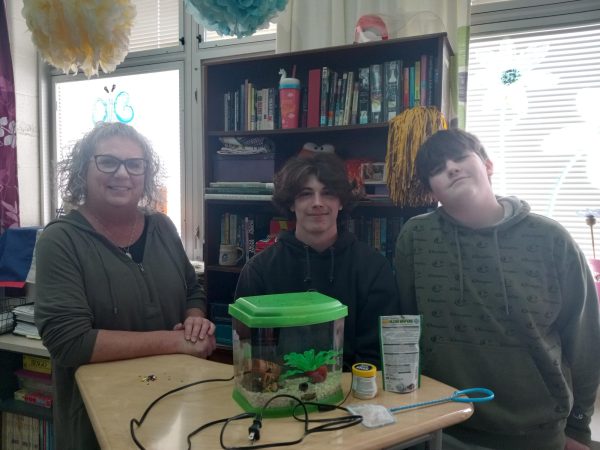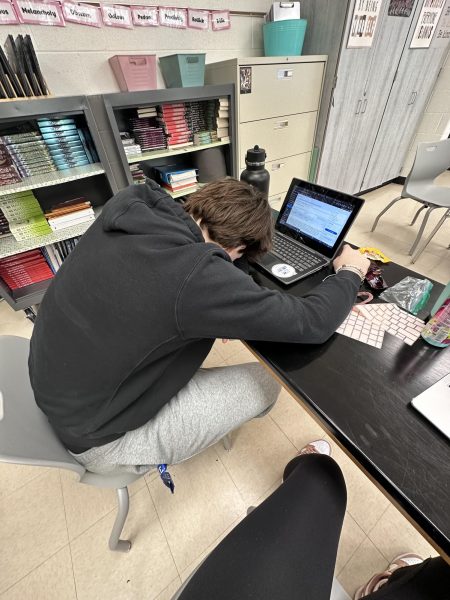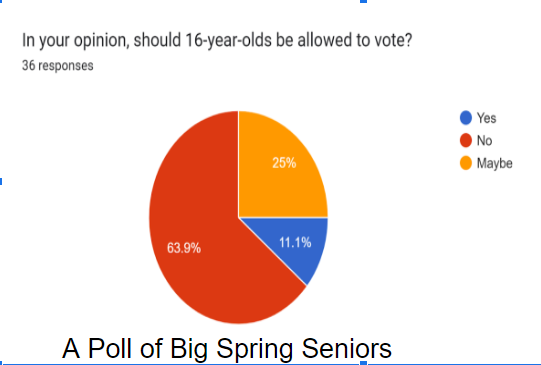Students arriving later present better overall health
Student tries his best to stay awake in first period Monday morning at 7:28. Cody Jones is a freshman at Big Spring High School and often struggles staying awake for his classes, especially on Mondays.
October 30, 2018
So many students starting high school and middle school earlier struggle with issues all circling back to the fact that they must wake up at the crack of dawn. Teen years are already a time of maturation: physical, emotional, and intellectual. All of these processes are fueled by good, plentiful sleep. However, too often teens don’t get enough sleep. Later school start times lead to adequate sleep time which shows a rise in student’s grades, and time to process information around them in a classroom environment.Performing better in school and focusing can be better when students get time to sleep in, for example, if they have an orthodontist appointment that morning and have an extra hour to sleep. This is due to the extra amount of sleep needed to function in school. A lack of sleep creates a delayed reaction time, irritability, depressed mood, forgetfulness, clumsiness, and trouble learning new concepts. Students are already overwhelmed by additional homework for Advanced Placement classes, outside activities, part-time jobs, as well as peer, parental and community pressures to excel. It has been proven in a study done by Michigan State University that most teens are unable to fall asleep before about 10:45 p.m. and that their brains remain in sleep mode until about 8 a.m. This delay is directly related to hormonal changes during puberty and is something that most teens experience only during adolescence.
Plus, another controversial issue that is brought up is drowsy driving which is caused by students not getting enough sleep and then choosing to drive to school when there are other options like taking the bus. A person who is sleep-deprived has reduced reaction times, slower eye movements, and decreased ability to make quick decisions. Therefore, they shouldn’t be driving. In fact, a person with fewer than four hours of sleep has the same driving characteristics as someone who is legally drunk. The number of car crashes in five districts that changed their start times, decreased by 13%. It’s no wonder that the CDC, the American Medical Association, and the American Academy of Pediatrics have all issued policy statements that endorse a high school start time of no earlier than 8:30 a.m. Transportation issues, fitting in after-school activities, adjusting meal times are always concerns for later start times. However, those are things that could be adjusted to make students more focused on their academics and extracurriculars. Many extracurricular activities occur after the regular school day. Later start times would give students the opportunity to still participate in these activities, while giving them more recovery time each overnight for rest and healing. Students engaged in after school activities typically require more time to wind down to reach a state of sleep as well, and this schedule change would accommodate their needs.
At Big Spring, the idea of starting even an hour later should definitely be brought up. Just an hour could help students academically, help to keep them safer, put them in a better mood and so many other things. Big Spring would see a positive dramatic change in student’s tardiness, adensenses, and work ethic. William Dement, founder of the Stanford Sleep Disorders Clinic said, “I think high school is the real danger spot in terms of sleep deprivation. It’s a huge problem. What it means is that nobody performs at the level they could perform, whether it’s in school, on the roadways, on the sports field or in terms of physical and emotional health.” So many students deal with sleep deprivation including myself and is something that should be known and accounted for.
